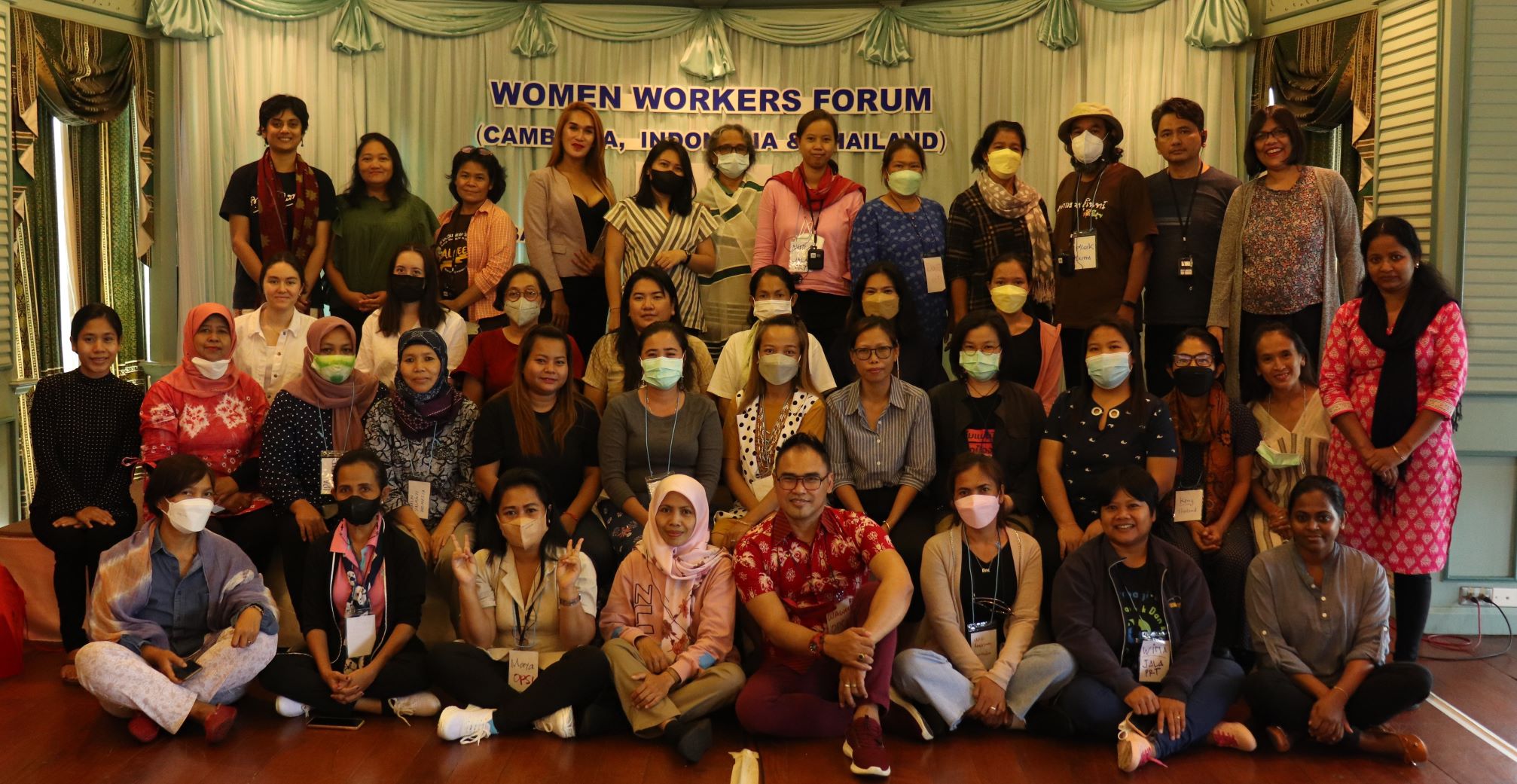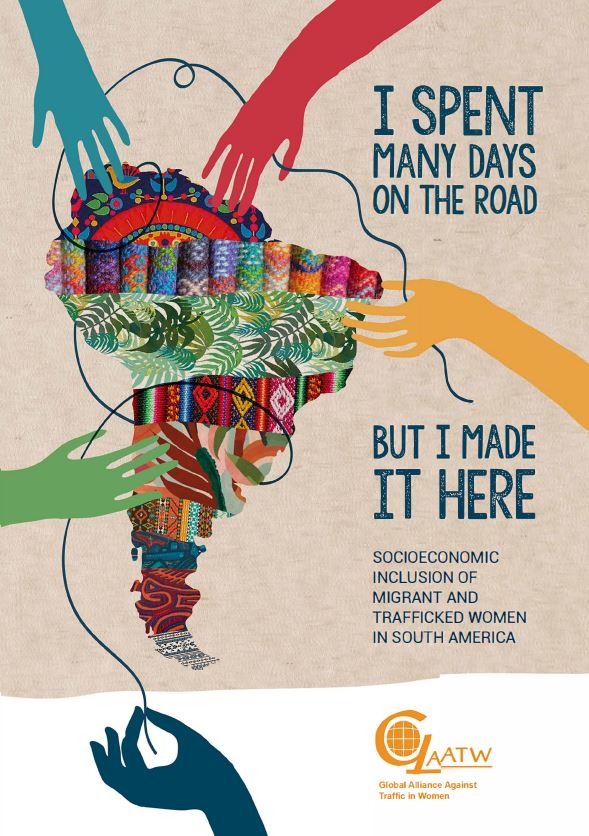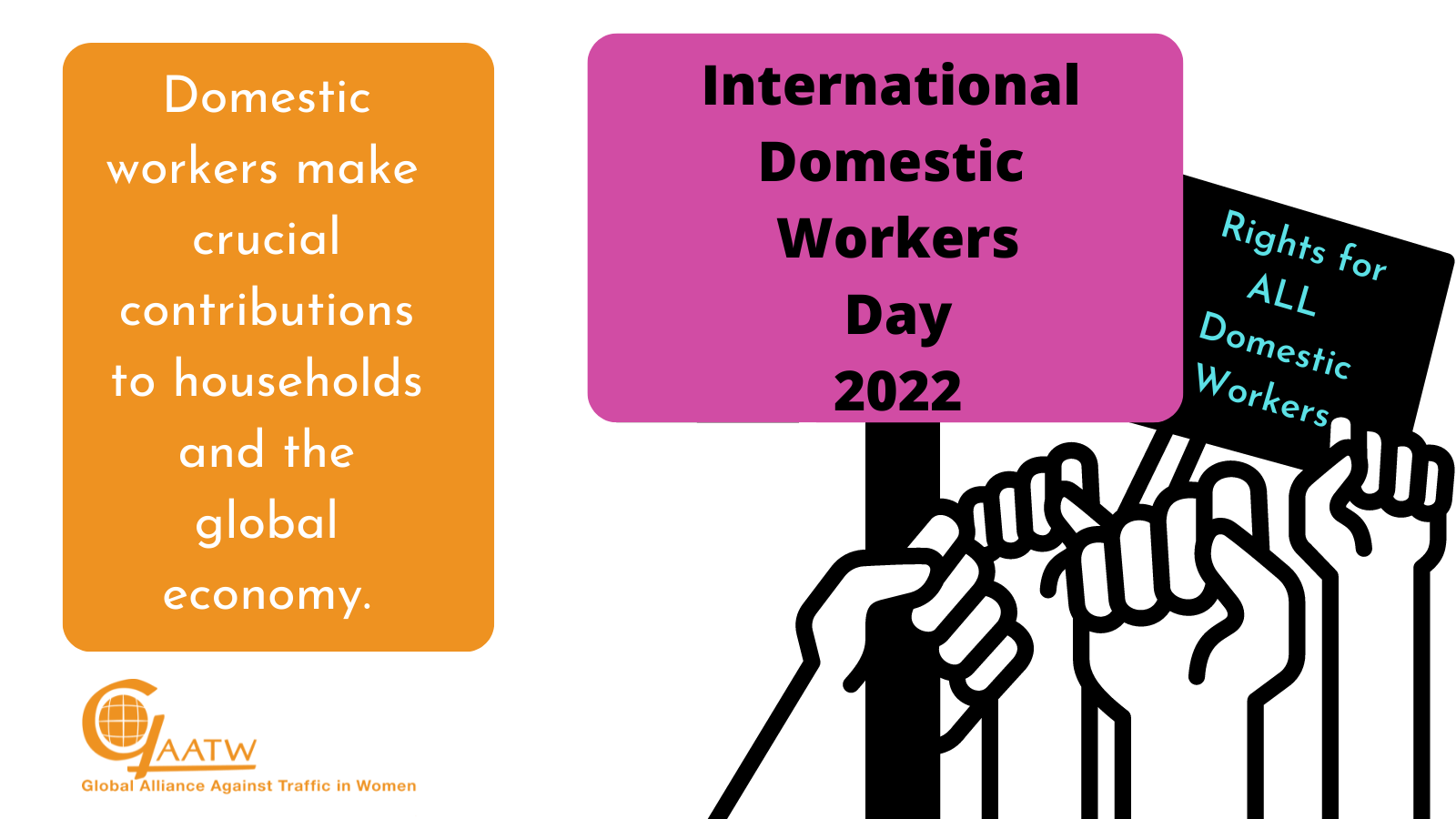"Make women workers visible”: South Asia partners meeting of Women Workers Forum
The South Asia partners of GAATW’s Women Workers Forum met in Kathmandu, Nepal from 17 to 20 August. This was the second regional gathering of the programme after the Southeast Asia partners meeting in Bangkok in July.
 We had participants from eleven organisations across four countries. From India there was Women’s Initiative (WINS), which works with sex workers and farmers in Andhra Pradesh; the Kerala unit of the Self-Employed Women’s Association (SEWA), a trade union for women in the informal sectors; and Shramajivi Mahila Samity (SMS), which works with indigenous and rural women in Jharkhand. From Nepal we had Aaprabasi Mahila Kamdar Samuha (AMKAS), an organisation led by returnee migrant women workers; Women Forum for Women in Nepal (WOFOWON), a network of entertainment sector women workers; Tarangini Foundation, a feminist organisation working to document and advocate for women’s right to work, bodily autonomy and identity; and Women’s Rehabilitation Centre (WOREC), which works on prevention of trafficking from a human rights perspective. From Sri Lanka, there was Eastern Self-Reliant Community Awakening Organisation (ESCO), which works with migrant workers, and Center for Human Rights and Community Development (CHRCD), which works with returnee and prospective migrants. From Bangladesh, we had Badabon Sangho, which works on land and water rights of women in the Sundarbans and Ovibashi Karmi Unnayan Program (OKUP), which works with prospective and returnee migrant workers.
We had participants from eleven organisations across four countries. From India there was Women’s Initiative (WINS), which works with sex workers and farmers in Andhra Pradesh; the Kerala unit of the Self-Employed Women’s Association (SEWA), a trade union for women in the informal sectors; and Shramajivi Mahila Samity (SMS), which works with indigenous and rural women in Jharkhand. From Nepal we had Aaprabasi Mahila Kamdar Samuha (AMKAS), an organisation led by returnee migrant women workers; Women Forum for Women in Nepal (WOFOWON), a network of entertainment sector women workers; Tarangini Foundation, a feminist organisation working to document and advocate for women’s right to work, bodily autonomy and identity; and Women’s Rehabilitation Centre (WOREC), which works on prevention of trafficking from a human rights perspective. From Sri Lanka, there was Eastern Self-Reliant Community Awakening Organisation (ESCO), which works with migrant workers, and Center for Human Rights and Community Development (CHRCD), which works with returnee and prospective migrants. From Bangladesh, we had Badabon Sangho, which works on land and water rights of women in the Sundarbans and Ovibashi Karmi Unnayan Program (OKUP), which works with prospective and returnee migrant workers.
Solidarity with women’s rights, migrant rights, and labour rights movements in Europe
 In September, GAATW hosted a workshop on bridging movements and building alliances during the Transnational Meeting in Sofia organised by LevFem (Bulgaria) and Transnational Social Strike (Italy). This brave and ambitious meeting of more than 130 activists focused on the world's most pressing crises as seen from a European perspective: health and care workers' and migrants' precarious rights (especially refugees and those seeking international protection), Russia’s war in Ukraine, the climate crisis, the situation of prisoners, and more.
In September, GAATW hosted a workshop on bridging movements and building alliances during the Transnational Meeting in Sofia organised by LevFem (Bulgaria) and Transnational Social Strike (Italy). This brave and ambitious meeting of more than 130 activists focused on the world's most pressing crises as seen from a European perspective: health and care workers' and migrants' precarious rights (especially refugees and those seeking international protection), Russia’s war in Ukraine, the climate crisis, the situation of prisoners, and more.
Report on actions of public institutions on human trafficking in Peru
CHS Alternativo and the Peruvian Ombudsman presented the VIII Alternative Report, a document that analyses the actions of public institutions against human trafficking during the 2020-2021 period.
It shows that the budget for combating trafficking has been substantially reduced in the last eight years, reaching just 0.12 Sol per person, which is minimal. "In terms of practicality, this means that the State invests less per person than what a piece of bread currently costs," said the Ombudsman Eliana Revollar Añaños. The document also points out that the COVID-19 pandemic and the political crisis have had an impact on human trafficking. Traffickers have innovated in their recruitment methods and have moved to the digital space, through social media networks. In addition, they have taken advantage of the vulnerability of those who have lost their jobs, live in situations of violence, or require urgent economic assistance.
On the other hand, during the state of emergency, state services that were not considered essential were left neglected, which is why arrests, investigations, prosecutions, and convictions for trafficking were postponed, leaving a climate of impunity that allowed criminals to operate with lower risk of detection and sanction.
Creating learning spaces and moving towards change: Southeast Asia partners meeting of Women Workers Forum
 |
Group photo of the SouthEast Asia participants at the Women Workers Forum held in Bangkok in July 2022. Photo by Jennifer Janssen |
In July, we organised a convening of the Southeast Asia partners of the Women Workers Forum (WWF) programme in Bangkok. The core aim of WWF is to create a supportive space for workers’ political education through peer-learning processes, which would aid in realising their rights at work and strengthen their self-organising. Building their collective strength and voices is a way to challenge the invisibilisation of women’s work in society. It is premised on the belief that women workers can set their own learning agendas and articulate their visions for change, with external agents such as NGOs only supporting the process. We hope that through the process of mutual learning and increasing awareness, women workers will be able to engage with the state, employers, and other stakeholders to make their demands for dignified work and living conditions. The programme’s partners span several countries across Southeast, South and West Asia.
Performing double to triple the workload as breadwinners, caregivers, and household workers: A new report on the socioeconomic inclusion of migrant and trafficked women in South America

Migrant and trafficked women are employed in precarious conditions within the informal economy, and relegated to gendered work such as the domestic, care and cleaning sectors. The burden of care work and the gendered division of labour shape both their access to paid work and their roles within families.
The women’s migration journeys were fraught with challenges and uncertainties, yet these also illustrate their courage and resilience in trying to improve their lives. Most women spoke of hardships such as spending days on the road, sleeping on the streets, going without food, facing racist or xenophobic behaviours, and fear of sexual attacks. Many had taken on large debts or exhausted their life savings. Yet, the hope for a better life kept them going. A Dominican woman in Uruguay shared, “we took a bus to Brazil, where we stayed in a shelter for three days. I didn’t sleep…I remember we left the countryside on a Tuesday and arrived on a Saturday, we hopped from bus to bus.”
Letter to the Indian Minister of Labour from the Women Workers Forum India
Last month we supported our members and partners from Women's Initiatives (WINS), the Telangana Domestic Workers Union, the National Network of Sex Workers India, the Andha Domestic Workers Union, and the Centre for World Solidarity, to write to the Indian Minister of Labour ahead of a national meeting in Tirupati of the Ministers of Labour from all the states and Union Territories.
Criminalisation alone cannot end trafficking in persons
Statement by the Global Alliance Against Traffic in Women to the United Nations Constructive Dialogue on Trafficking in Persons, 1 July 2022, Vienna
Read the statement below or view it read out by Maya Linstrum-Newman, International Advocacy Officer at GAATW.
Essential but excluded: Rights protections for domestic workers are long overdue
Statement by the Global Alliance Against Traffic in Women on International Domestic Workers Day
 Domestic workers make crucial contributions to households and the global economy, yet continue to suffer from multiple vulnerabilities caused by the lack of recognition and respect for their work, inhumane labour migration regimes, rogue recruitment practices, and gender-based discrimination and violence.
Domestic workers make crucial contributions to households and the global economy, yet continue to suffer from multiple vulnerabilities caused by the lack of recognition and respect for their work, inhumane labour migration regimes, rogue recruitment practices, and gender-based discrimination and violence.
On this International Domestic Workers Day, we highlight the effects of the COVID-19 pandemic on migrant domestic workers in the past two years and their exclusion from much-needed social protections. We call for measures to improve their working and living conditions as well as access to labour rights and government support.
In our recently published research on reintegration of women migrant (domestic) workers from Bangladesh, India, Nepal, and Sri Lanka who had returned from the Middle East, the vast majority reported a host of human and labour rights violations but very limited government assistance, including during the COVID-19 pandemic.
